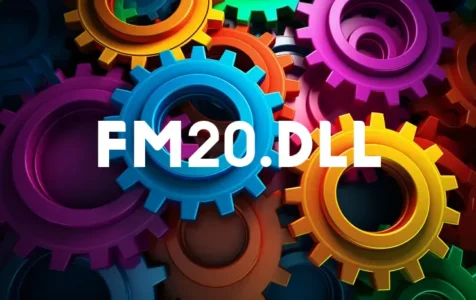FM20.DLL is a pivotal file belonging to the Microsoft Forms 2.0 Object Library, a part of the Microsoft Office suite. This dynamic link library (DLL) file is essential for applications, such as Microsoft Excel, to allow users to create forms within the Microsoft Office environment. The FM20.DLL takes on an essential role, ensuring software can access standard forms functionality provided by Microsoft.
Is FM20.DLL Safe to Run?
Yes, the genuine FM20.DLL file is safe to run as it is a legitimate component of Microsoft Office. However, caution is advised because malicious programs often disguise themselves as legitimate DLL files. If located in the correct directory, typically within the Microsoft Office installation folder (e.g. C:\Program Files\Microsoft Office\root\vfs\System), and sourced from a legitimate Microsoft Office installation, it poses no threat.
Could FM20.DLL Be a Virus or Malware?
While the original FM20.DLL is not a virus, malicious software can masquerade as FM20.DLL. Therefore, it’s crucial to ensure the file’s authenticity and integrity by checking its location and digital signature. Any deviation or if by chance, the file is found outside a normal Microsoft Office directory, it could potentially be malicious and should be scanned with up-to-date antivirus software.
Common Issues Associated with FM20.DLL
Common errors associated with FM20.DLL include:
Expert Tip: For smoother PC performance, consider using a PC optimization tool. It handles junk files, incorrect settings, and harmful apps. Make sure it's right for your system, and always check the EULA and Privacy Policy.
Special offer. About Outbyte, uninstall instructions, EULA, Privacy Policy.
– “fm20.dll is missing”
– “fm20.dll error loading”
– “fm20.dll crash”
– “fm20.dll was not found”
– “fm20.dll could not be located”
– “fm20.dll Access Violation”
These errors may occur due to missing or corrupt FM20.DLL files, registry issues, or malware infections disrupting the standard operation of the file.
How to Fix FM20.DLL Related Issues
Method 1: Automated Repair via Windows Update
Ensure your Windows installation is up-to-date as Microsoft often releases DLL file updates with their regular patches:
1. Press Windows key + I to open Settings.
2. Go to Update & Security > Windows Update.
3. Click “Check for updates” and install any available updates.
Method 2: Re-register the FM20.DLL File
If the FM20.DLL file exists but is unregistered, you can manually register it again:
1. Open Command Prompt as an administrator.
2. Type `regsvr32 /u fm20.dll` to unregister the file.
3. Type `regsvr32 fm20.dll` to register it again.
Method 3: Download/Restore from Trusted Source
Get the DLL from a trusted source if the file is missing:
1. Locate the original installation media or a trusted digital source for Microsoft Office.
2. Extract the FM20.DLL from there or run the Office installer to perform a repair which should restore missing DLL files.
Method 4: Scan for Malware
Perform a full system scan with a reliable antivirus program to ensure that any malware mimicking or targeting FM20.DLL is removed.
Method 5: Perform a System File Check (SFC)
Running the SFC scan can recover the corrupted files:
1. Open an elevated Command Prompt.
2. Enter `sfc /scannow` and wait for the process to complete.
Method 6: System Restore
If you are facing persistent issues, performing a System Restore to a point when the error wasn’t present can resolve the issue:
1. Type “Create a restore point” into the Windows search bar and open the System Properties dialog.
2. Click on the “System Restore” button and follow the prompts to select a restore point before the issues began.
In situations where the user is uncertain, they could seek help through community discussions to understand how others have resolved similar issues. Additionally, users should avoid downloading DLL files from dubious sources to prevent inadvertently installing malware on their systems.
To avoid these issues entirely, always keep your software and operating system up to date, maintain reputable antivirus software, and only download files from trusted sources. If a clean version of the FM20.DLL is needed for a critical application, the best course of action is to directly contact Microsoft support or take help from the Microsoft community for the authentic file related to your version of Microsoft Office.
For advanced assistance, referring to community discussions on Microsoft’s support forums could provide detailed user experiences and potential solutions. Always prioritize fixing the FM20.DLL issues without resorting to third-party DLL download sites to ensure system security and integrity.
